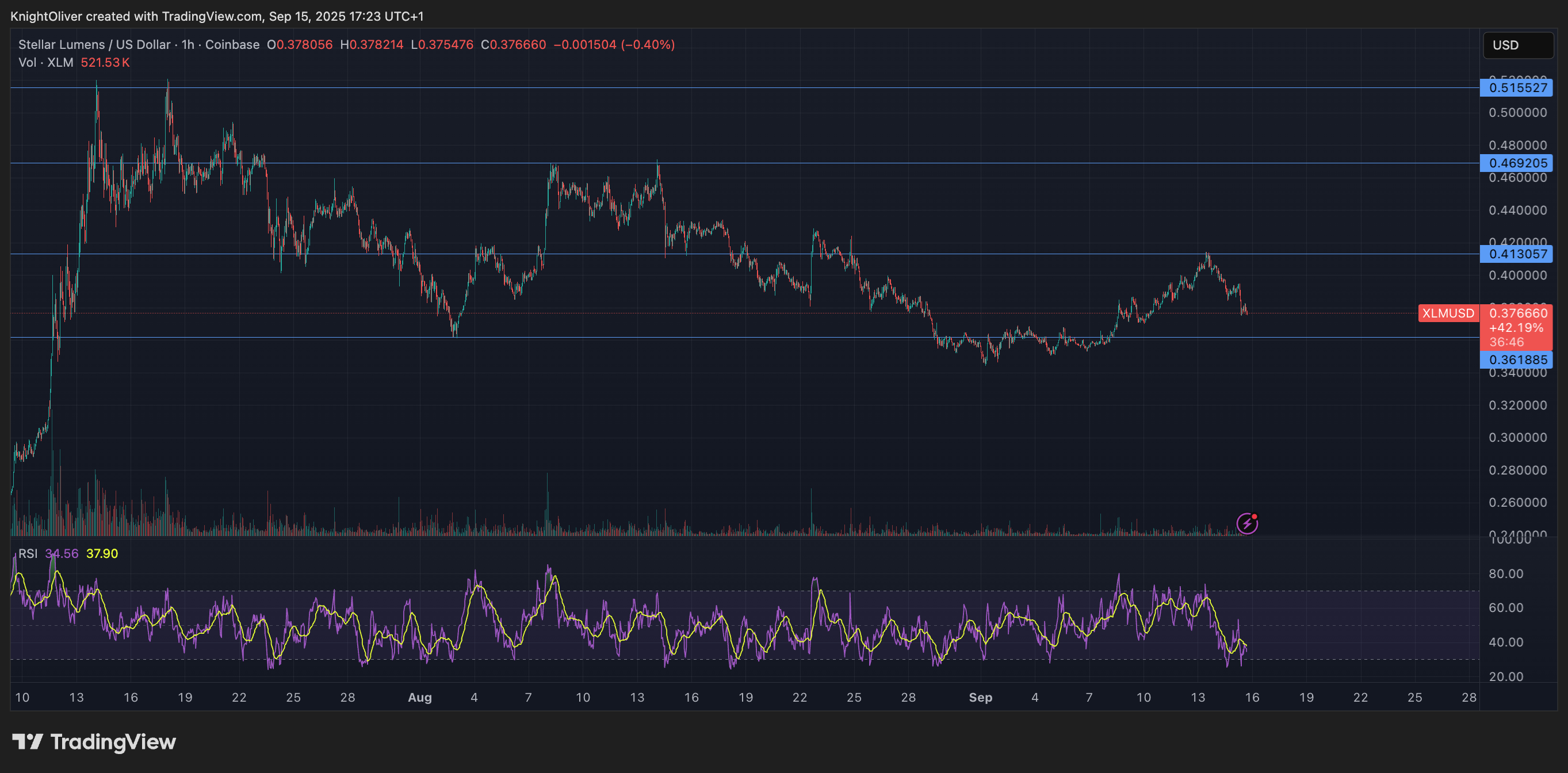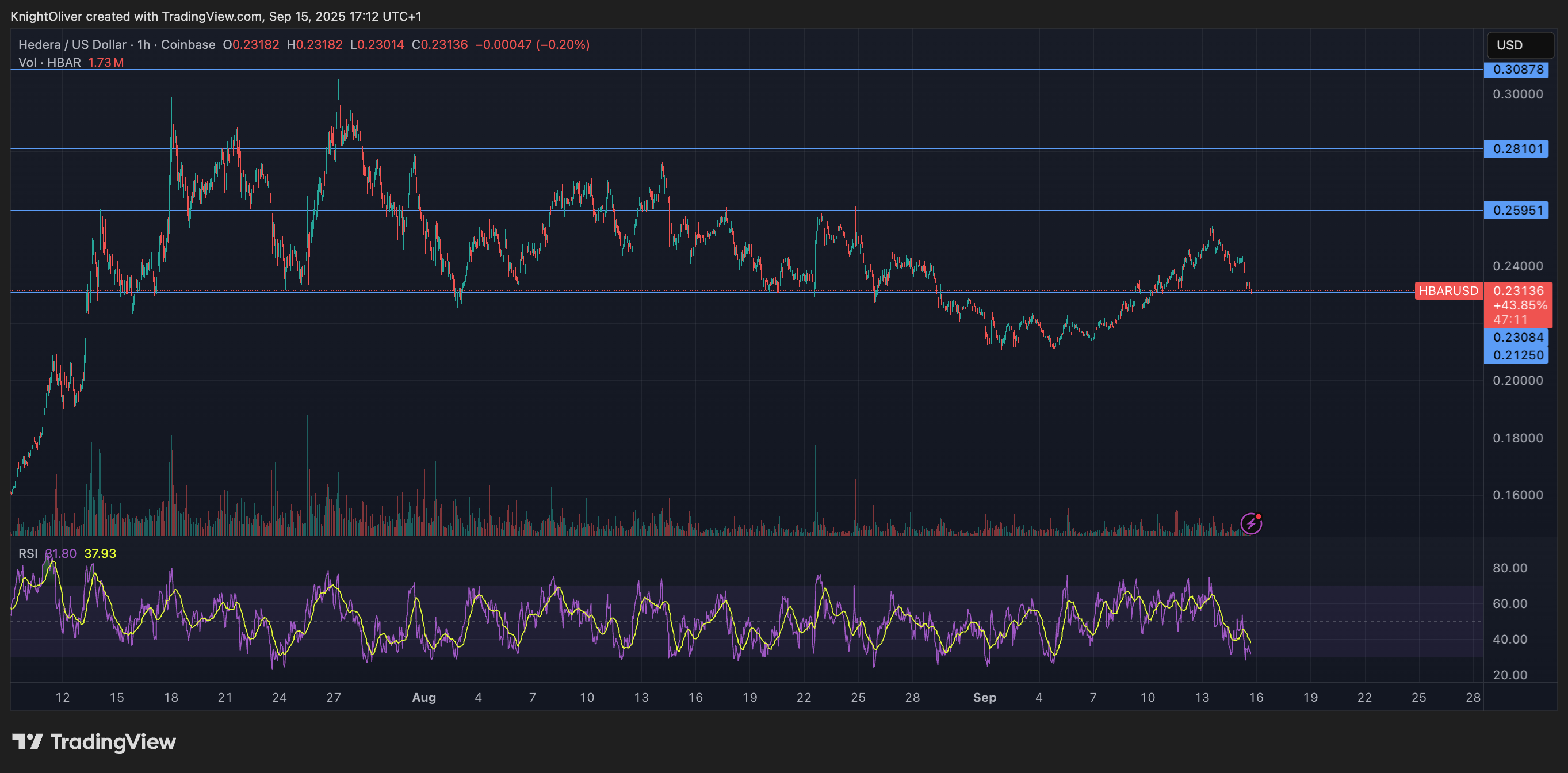Uncategorized
Trump’s Crypto Summit Sets Agenda for U.S. Pivot

WASHINGTON, D.C. — President Donald Trump assured the crypto sector that it’s on new ground in a first-ever summit at the White House on Friday, illustrating what the industry suspected: It’s got friends at every level in Washington.
«I know that many of you have been fighting for years for this, and it’s an honor to be with you at the White House,» Trump said as the White House meeting got underway.
In his brief statement, Trump said he would end his predecessor’s “war on crypto,” praised lawmakers’ legislative efforts and discussed his new Bitcoin reserve.
“Regulators strong armed banks. I mean, they really did – They strong armed banks into closing the accounts of crypto businesses and entrepreneurs, effectively blocking some money transfers to and from exchanges, and they weaponized government against the entire industry,” Trump said. «But I know that feeling also maybe better than you do. All of that will soon be over and we are ending Operation Chokepoint 2.0.»
Trump said he wanted to sign stablecoin legislation before Congress breaks for the August recess.
«I also want to express my strong support for the efforts of lawmakers in Congress as they work on bills to provide regulatory certainty for dollar-backed stablecoins and the digital assets market,» he said. «They’re working very hard on that. This is a tremendous opportunity for economic growth and innovation in our financial sector, and will really go a long way.»
Referring to his Thursday executive order creating a Bitcoin reserve, Trump said it was «foolish» that the federal government had already sold so much of its seized Bitcoin
«The federal government is already among the largest holders of Bitcoin, as you know, really one of the largest holders in the world, with as many as 200,000 Bitcoin obtained via civil law and various other forms of law, including enforcement actions,» he said. «These existing holdings will form the foundation of the new reserve.»
«From this day on, America will follow the rule that every Bitcoiner knows very well, never sell your Bitcoin,» he said.
Wide swaths of the industry were represented by the guest list, which included top executives of Coinbase, Ripple, Kraken, Gemini, Chainlink, Robinhood and many others, representing the most formal-looking crypto group since the black-tie ball celebrating Trump’s election victory. Tyler and Cameron Winkelvoss of Gemini, and Sergey Nazarov of Chainlink were among those who spoke during the live-streamed portion of the summit.
Earlier on Friday, a senior White House official further clarified the administration’s position on its bitcoin reserve and the secondary crypto stockpile that Trump’s order is meant to establish. The official said that the U.S. government has an estimated 200,000 bitcoin to start the reserve and will be conducting an audit to figure out the specific holdings, and any non-bitcoin seizures will be maintained in the other stockpile. No new money will be put into non-bitcoin assets, and any active future investments in bitcoin will have to be worked out in a way that doesn’t use tax dollars, the official said.
The afternoon summit was largely meant to set a tone from the administration, which has sought to quickly put digital assets on friendlier footing than the industry experienced during the administration of former President Joe Biden.
Uncategorized
Wall Street Bank Citigroup Sees Ether Falling to $4,300 by Year-End

Wall Street giant Citigroup (C) has launched new ether (ETH) forecasts, calling for $4,300 by year-end, which would be a decline from the current $4,515.
That’s the base case though. The bank’s full assessment is wide enough to drive an army regiment through, with the bull case being $6,400 and the bear case $2,200.
The bank analysts said network activity remains the key driver of ether’s value, but much of the recent growth has been on layer-2s, where value “pass-through” to Ethereum’s base layer is unclear.
Citi assumes just 30% of layer-2 activity contributes to ether’s valuation, putting current prices above its activity-based model, likely due to strong inflows and excitement around tokenization and stablecoins.
A layer 1 network is the base layer, or the underlying infrastructure of a blockchain. Layer 2 refers to a set of off-chain systems or separate blockchains built on top of layer 1s.
Exchange-traded fund (ETF) flows, though smaller than bitcoin’s (BTC), have a bigger price impact per dollar, but Citi expects them to remain limited given ether’s smaller market cap and lower visibility with new investors.
Macro factors are seen adding only modest support. With equities already near the bank’s S&P 500 6,600 target, the analysts do not expect major upside from risk assets.
Read more: Ether Bigger Beneficiary of Digital Asset Treasuries Than Bitcoin or Solana: StanChart
Uncategorized
XLM Sees Heavy Volatility as Institutional Selling Weighs on Price

Stellar’s XLM token endured sharp swings over the past 24 hours, tumbling 3% as institutional selling pressure dominated order books. The asset declined from $0.39 to $0.38 between September 14 at 15:00 and September 15 at 14:00, with trading volumes peaking at 101.32 million—nearly triple its 24-hour average. The heaviest liquidation struck during the morning hours of September 15, when XLM collapsed from $0.395 to $0.376 within two hours, establishing $0.395 as firm resistance while tentative support formed near $0.375.
Despite the broader downtrend, intraday action highlighted moments of resilience. From 13:15 to 14:14 on September 15, XLM staged a brief recovery, jumping from $0.378 to a session high of $0.383 before closing the hour at $0.380. Trading volume surged above 10 million units during this window, with 3.45 million changing hands in a single minute as bulls attempted to push past resistance. While sellers capped momentum, the consolidation zone around $0.380–$0.381 now represents a potential support base.
Market dynamics suggest distribution patterns consistent with institutional profit-taking. The persistent supply overhead has reinforced resistance at $0.395, where repeated rally attempts have failed, while the emergence of support near $0.375 reflects opportunistic buying during liquidation waves. For traders, the $0.375–$0.395 band has become the key battleground that will define near-term direction.

Technical Indicators
- XLM retreated 3% from $0.39 to $0.38 during the previous 24-hours from 14 September 15:00 to 15 September 14:00.
- Trading volume peaked at 101.32 million during the 08:00 hour, nearly triple the 24-hour average of 24.47 million.
- Strong resistance established around $0.395 level during morning selloff.
- Key support emerged near $0.375 where buying interest materialized.
- Price range of $0.019 representing 5% volatility between peak and trough.
- Recovery attempts reached $0.383 by 13:00 before encountering selling pressure.
- Consolidation pattern formed around $0.380-$0.381 zone suggesting new support level.
Disclaimer: Parts of this article were generated with the assistance from AI tools and reviewed by our editorial team to ensure accuracy and adherence to our standards. For more information, see CoinDesk’s full AI Policy.
Uncategorized
HBAR Tumbles 5% as Institutional Investors Trigger Mass Selloff

Hedera Hashgraph’s HBAR token endured steep losses over a volatile 24-hour window between September 14 and 15, falling 5% from $0.24 to $0.23. The token’s trading range expanded by $0.01 — a move often linked to outsized institutional activity — as heavy corporate selling overwhelmed support levels. The sharpest move came between 07:00 and 08:00 UTC on September 15, when concentrated liquidation drove prices lower after days of resistance around $0.24.
Institutional trading volumes surged during the session, with more than 126 million tokens changing hands on the morning of September 15 — nearly three times the norm for corporate flows. Market participants attributed the spike to portfolio rebalancing by large stakeholders, with enterprise adoption jitters and mounting regulatory scrutiny providing the backdrop for the selloff.
Recovery efforts briefly emerged during the final hour of trading, when corporate buyers tested the $0.24 level before retreating. Between 13:32 and 13:35 UTC, one accumulation push saw 2.47 million tokens deployed in an effort to establish a price floor. Still, buying momentum ultimately faltered, with HBAR settling back into support at $0.23.
The turbulence underscores the token’s vulnerability to institutional distribution events. Analysts point to the failed breakout above $0.24 as confirmation of fresh resistance, with $0.23 now serving as the critical support zone. The surge in volume suggests major corporate participants are repositioning ahead of regulatory shifts, leaving HBAR’s near-term outlook dependent on whether enterprise buyers can mount sustained defenses above key support.

Technical Indicators Summary
- Corporate resistance levels crystallized at $0.24 where institutional selling pressure consistently overwhelmed enterprise buying interest across multiple trading sessions.
- Institutional support structures emerged around $0.23 levels where corporate buying programs have systematically absorbed selling pressure from retail and smaller institutional participants.
- The unprecedented trading volume surge to 126.38 million tokens during the 08:00 morning session reflects enterprise-scale distribution strategies that overwhelmed corporate demand across major trading platforms.
- Subsequent institutional momentum proved unsustainable as systematic selling pressure resumed between 13:37-13:44, driving corporate participants back toward $0.23 support zones with sustained volumes exceeding 1 million tokens, indicating ongoing institutional distribution.
- Final trading periods exhibited diminishing corporate activity with zero recorded volume between 13:13-14:14, suggesting institutional participants adopted defensive positioning strategies as HBAR consolidated at $0.23 amid enterprise uncertainty.
Disclaimer: Parts of this article were generated with the assistance from AI tools and reviewed by our editorial team to ensure accuracy and adherence to our standards. For more information, see CoinDesk’s full AI Policy.
-

 Business11 месяцев ago
Business11 месяцев ago3 Ways to make your business presentation more relatable
-

 Fashion11 месяцев ago
Fashion11 месяцев agoAccording to Dior Couture, this taboo fashion accessory is back
-

 Entertainment11 месяцев ago
Entertainment11 месяцев ago10 Artists who retired from music and made a comeback
-

 Entertainment11 месяцев ago
Entertainment11 месяцев ago\’Better Call Saul\’ has been renewed for a fourth season
-

 Entertainment11 месяцев ago
Entertainment11 месяцев agoNew Season 8 Walking Dead trailer flashes forward in time
-

 Business11 месяцев ago
Business11 месяцев ago15 Habits that could be hurting your business relationships
-

 Entertainment11 месяцев ago
Entertainment11 месяцев agoMeet Superman\’s grandfather in new trailer for Krypton
-

 Entertainment11 месяцев ago
Entertainment11 месяцев agoDisney\’s live-action Aladdin finally finds its stars





